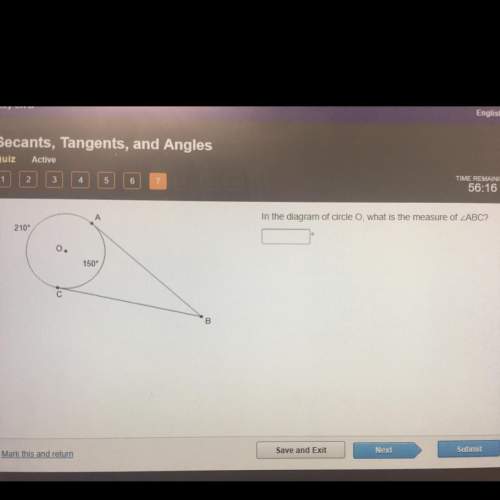
Mathematics, 19.03.2020 22:52 LilTJSavage22
Given $m\geq 2$, denote by $b^{-1}$ the inverse of $b\pmod{m}$. That is, $b^{-1}$ is the residue for which $bb^{-1}\equiv 1\pmod{m}$. Sadie wonders if $(a+b)^{-1}$ is always congruent to $a^{-1}+b^{-1}$ (modulo $m$). She tries the example $a=2$, $b=3$, and $m=7$. Let $L$ be the residue of $(2+3)^{-1}\pmod{7}$, and let $R$ be the residue of $2^{-1}+3^{-1}\pmod{7}$, where $L$ and $R$ are integers from $0$ to $6$ (inclusive). Find $L-R$.

Answers: 1


Another question on Mathematics

Mathematics, 21.06.2019 15:10
Which of the following is a justification used while proving the similarity of triangles lom and mon
Answers: 1

Mathematics, 21.06.2019 18:30
Find the constant of variation for the relation and use it to write an equation for the statement. then solve the equation.
Answers: 1

Mathematics, 22.06.2019 04:00
Order 1100000, 314000, 965000, 1890000, from least to greatest.
Answers: 1

Mathematics, 22.06.2019 05:00
In the triangle below, what is the length of the side opposite the 60° angle?
Answers: 1
You know the right answer?
Given $m\geq 2$, denote by $b^{-1}$ the inverse of $b\pmod{m}$. That is, $b^{-1}$ is the residue for...
Questions


Health, 02.11.2020 22:10

Business, 02.11.2020 22:10



Mathematics, 02.11.2020 22:10


Geography, 02.11.2020 22:10



Mathematics, 02.11.2020 22:10

Mathematics, 02.11.2020 22:10

Mathematics, 02.11.2020 22:10

History, 02.11.2020 22:10



Mathematics, 02.11.2020 22:10



Social Studies, 02.11.2020 22:10




